INTERVIEW: Navicula
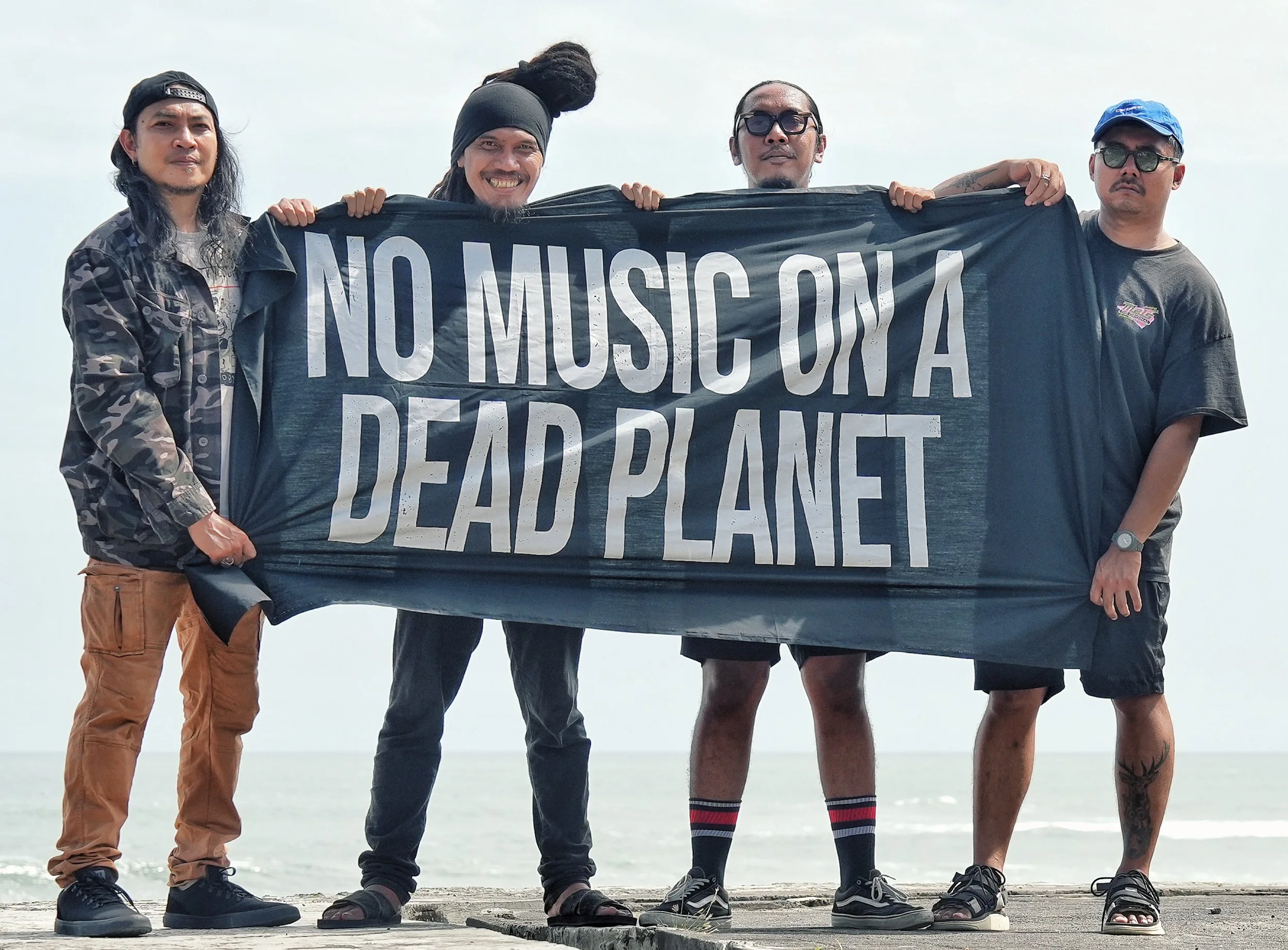
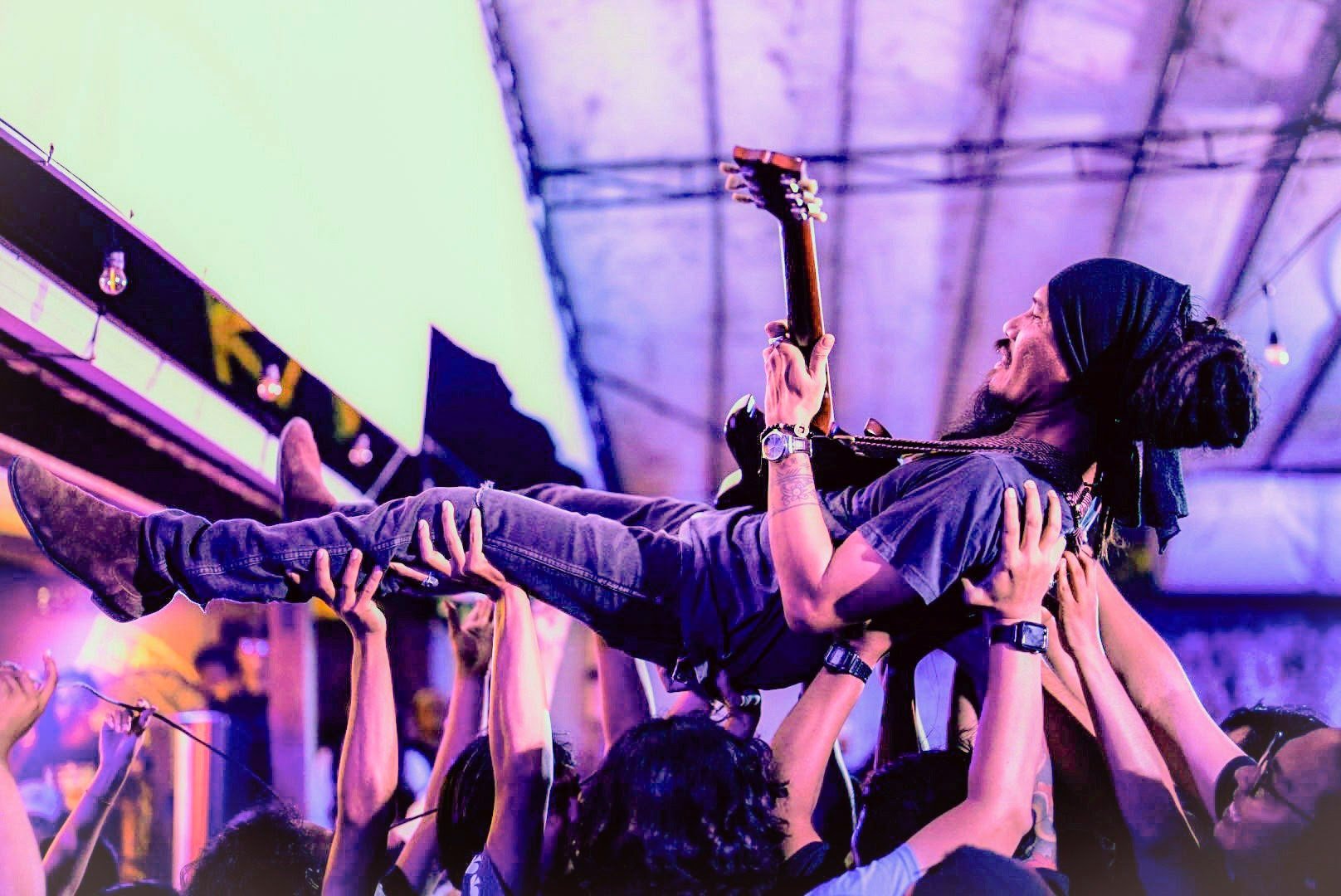
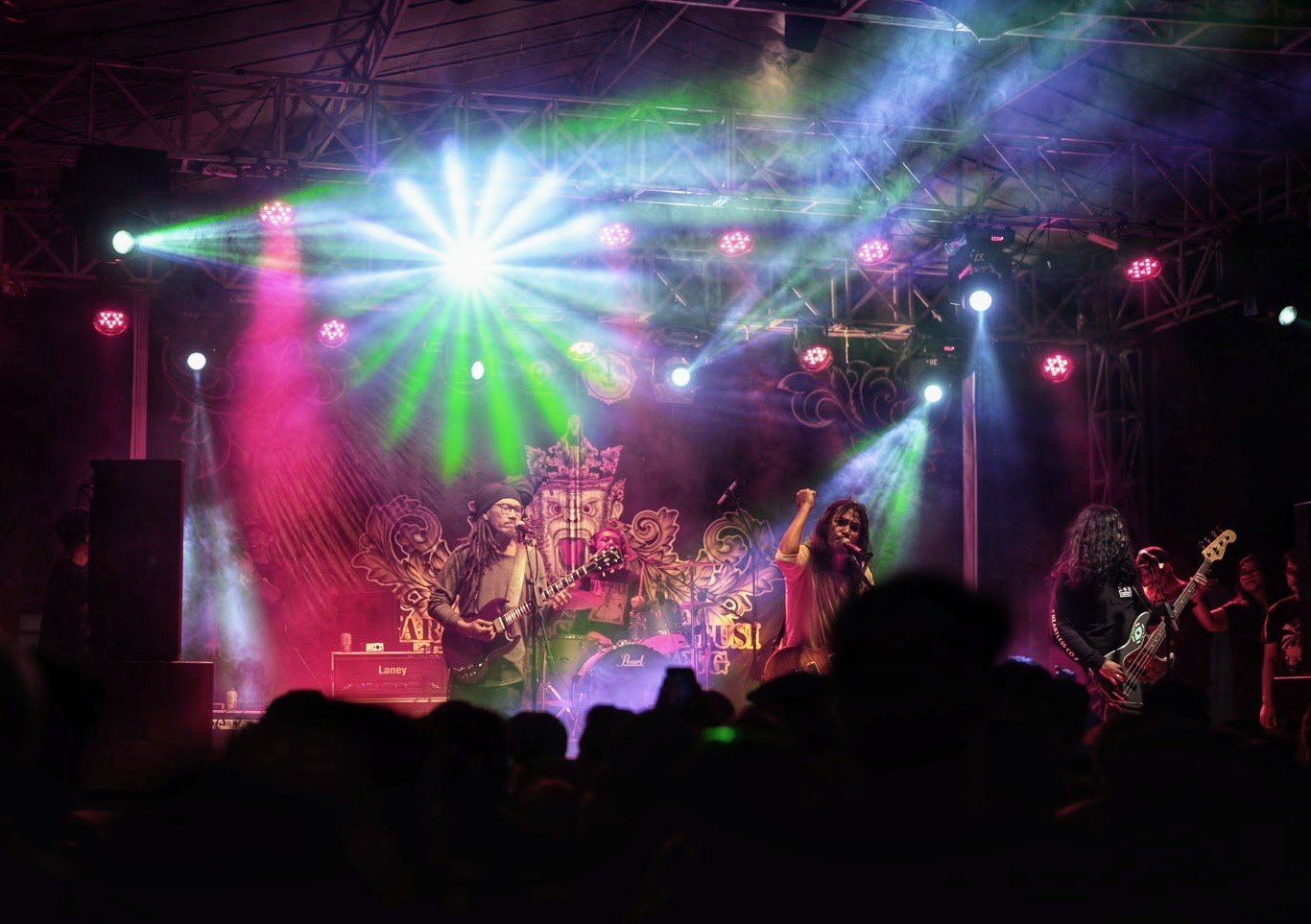
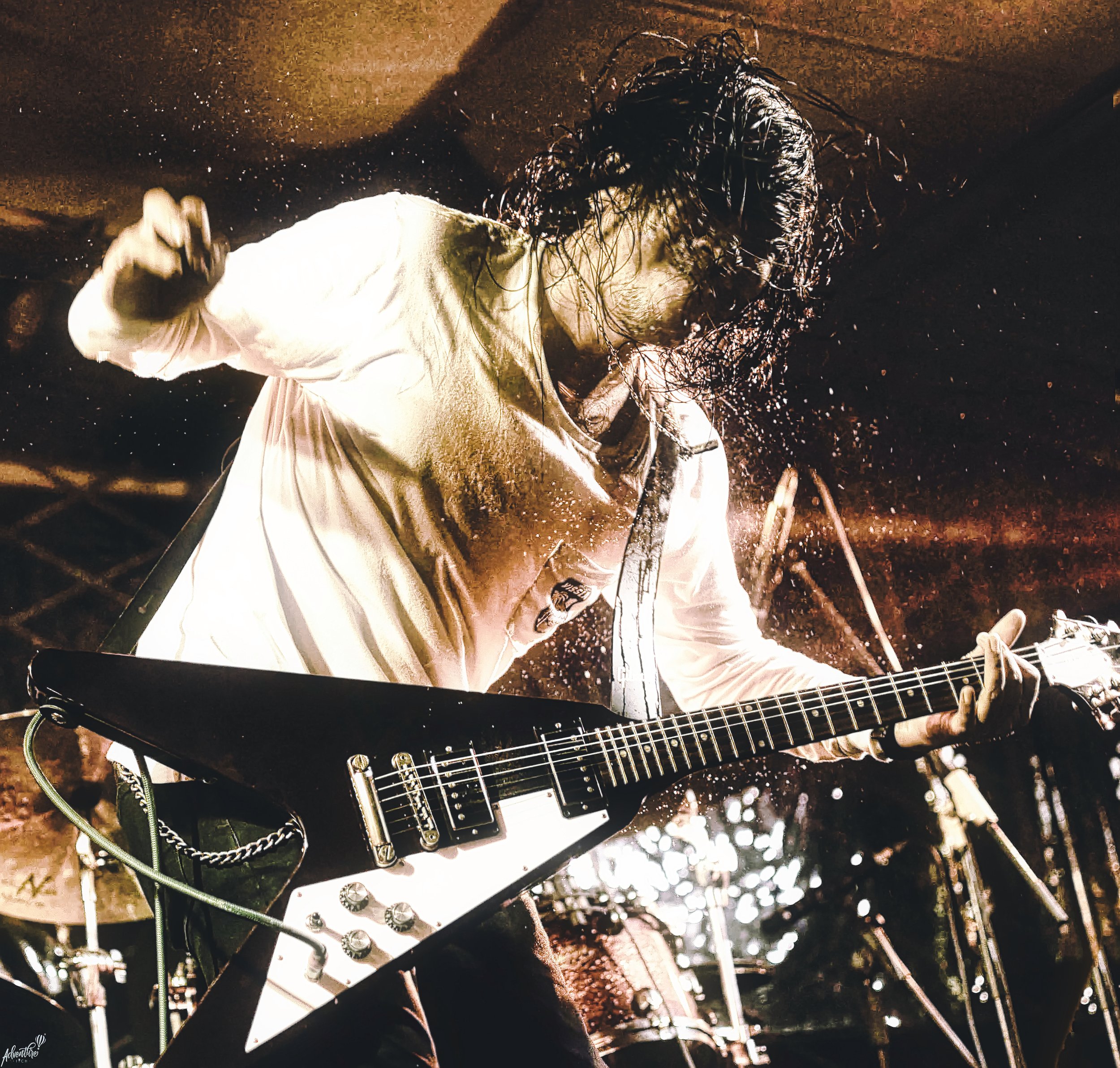
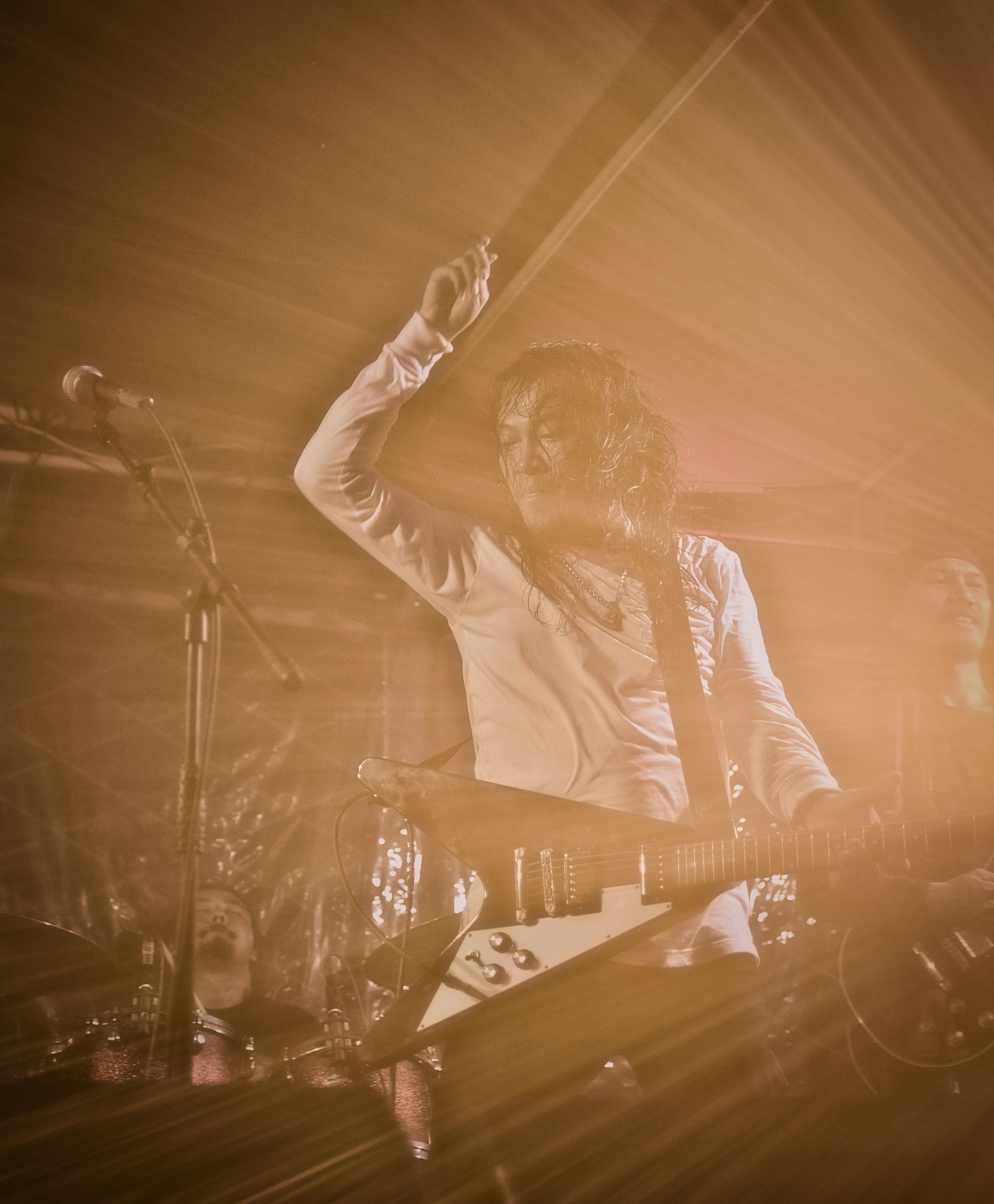
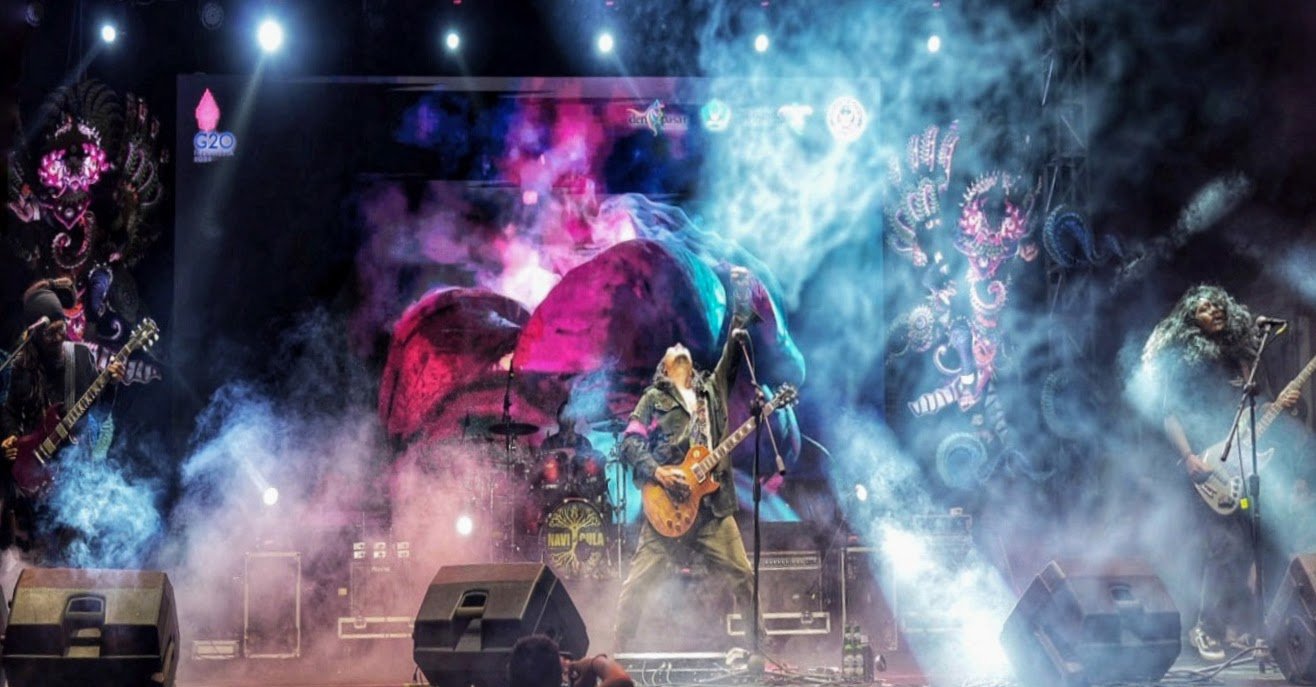
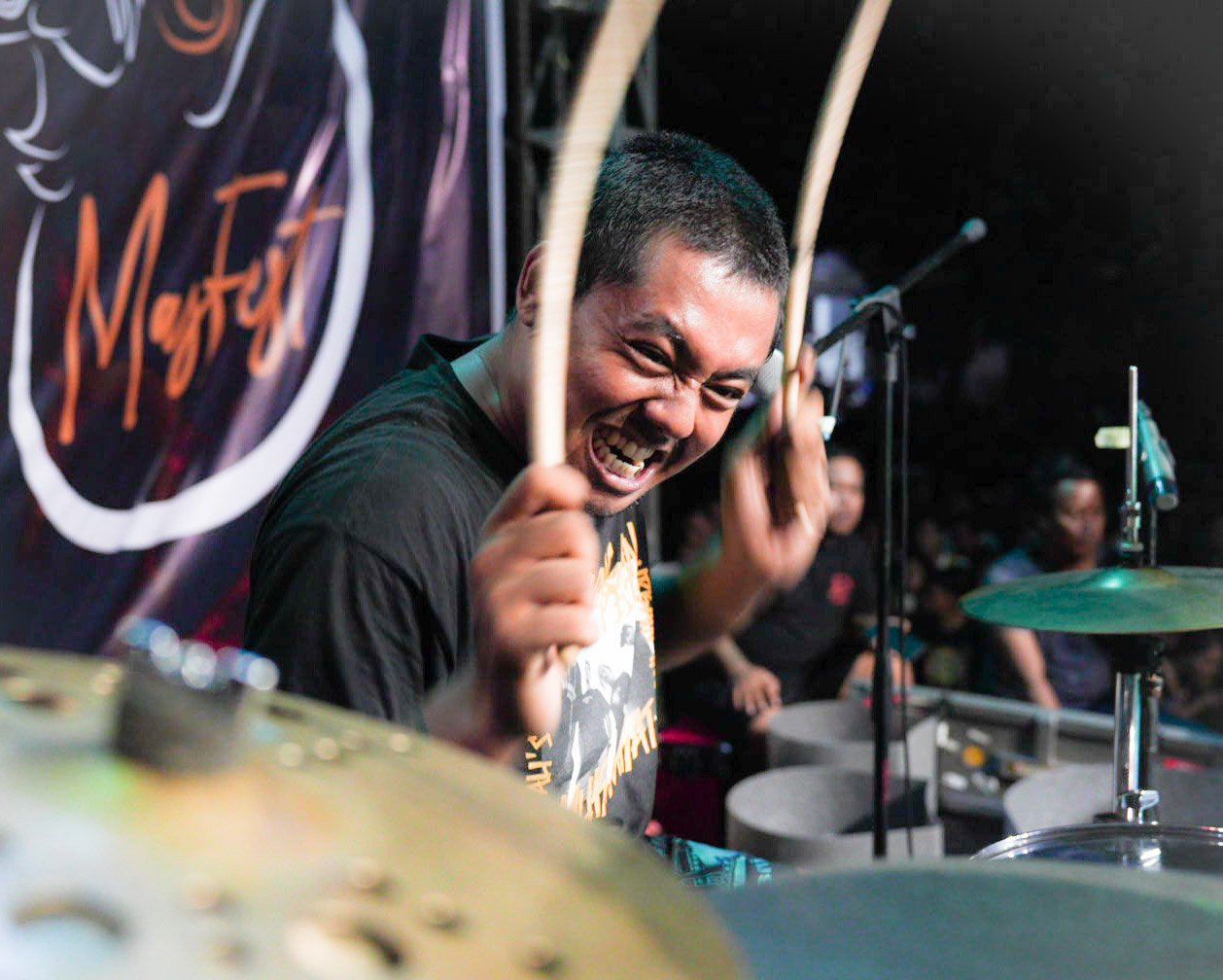
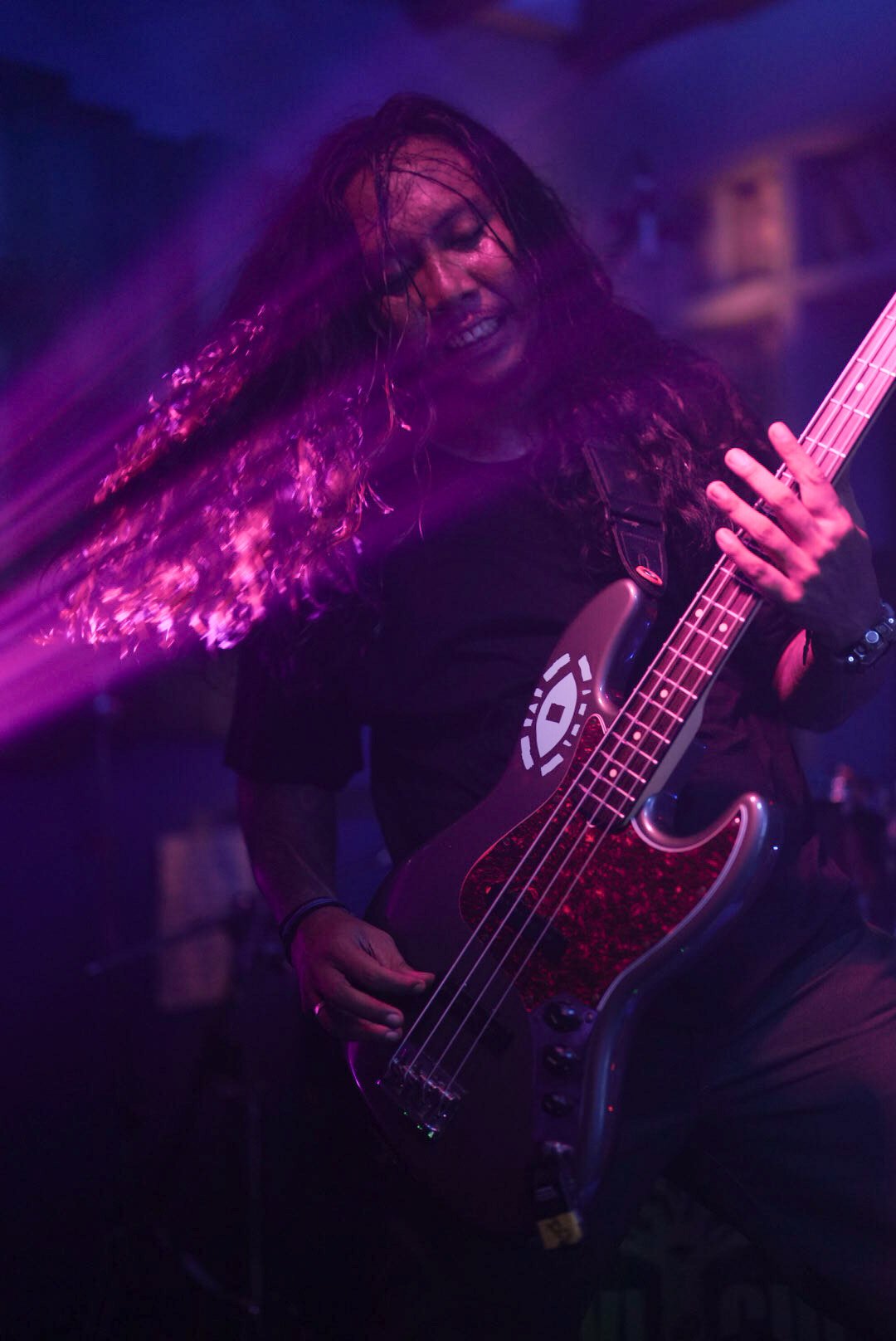
JUNE 9, 2023 | BY MARIA LOBO
Navicula is much more than a Rock & Roll band. They undoubtedly attract attention with their lyrics that delve into global, social, and environmental issues.
The band consists of Robi (lead vocalist, guitarist, and activist), Dadang (guitarist), Krishna (bass), and Palel (drummer).
Navicula was founded in 1996, and has won numerous national and international awards, as well as been invited to perform at various shows in the United States, Canada, and Australia. With 11 studio albums to their name and tours in Indonesia, Japan, Europe, the United States, Canada and Australia, they have been together for 27 years.
Their main music influences are 90’s rock with bands such as Nirvana, Alice in Chains and Pearl Jam. They have created a distinctive style of music; A mix of rock, grunge, psychedelic, alternative and folk.
Navicula gets your adrenaline pumping every time they step on stage. They have that spark, that charm and extra kick when they play that draws you in when you see them. I have had the exciting opportunity of interviewing them about their unique music journey.
Let's start from the beginning; How and where did the band start?
Robi: Navicula started in Denpasar (Bali, Indonesia) in 1996. The first members were Dadang and I. At that time we didn't have a fixed drummer, so we kept changing people on the drum position. So me on vocal and guitar, Dadang on bass and drummers. Gembull became our first drummer in 1998. The three of us played until 2012, where Made joined Navicula and he played bass and Dadang the guitar. So the format of the band became four.
Dadang: Actually, I mean like, it’s been 27 years, so actually we were friends before we made a band. We talked about music, friendship… We did not really talk about anything serious, just teenagers having fun. So it became serious when we tried to put all our time actually into some musical thing, and then made a band become our goal. And then, of course, like years after that, we tried to figure out how to make this band serious. We had to find the concept, topic, and message. It was easy because we just love it.
Krishna: I have known them since I was a child. I saw them performing a lot,in festivals, recording studios…. When I grew older, I met Robi again in Ubud. We connected again, and the same with Danang .Then, the tragedy happened. Navicula lost Made in a tragic car accident and I joined Navicula.
Palel: I started with them in the middle of 2017. It was in August. First I played with Made, the previous bass player in Navicula. I tried to make a band with friends and then in 2017 Navicula tried to find a new drummer and Made called me and that is how it happened.
Why Navicula as a name for the band?
Robi: In the beginning we kept changing with the band. There's no name .We kept on coming up with a few names and at that time me and Dadang were in high school.We were learning about biology and in a biology book we found the Navicula word. That word sounds interesting and also the meaning is very cool. It means small ship in latin. But actually it’s a name for one cell golden algae, plankton, which has the shape of a small ship. That is the brief history of the name.
What is the main musical influence in your work?
Robi: We are influenced by alternative rock, like the grunge era. At that time (1996), you know, like… in all the world globally including Indonesia grunge is so big. We grew up listening to Nirvana, Pearl Jam, Sound Garden, Alison James, Silverchair, Sonic Youth, Radiohead; so all these kinds of music are the strongest influence
Dadang is strongly influenced by blues and I love any crossover between punk and metal. Made was into punk and Gembull was strongly influenced by traditional percussion, because he grew up in a royal Bali traditional family. He can play traditional music like gamelan.
What made you address social and environmental issues?
Robi: Outside music, my activity actually. I am working passionately in so many NGOs as an
activist. Now I am working as a consultant also in some non-profit ecological organisations related to ecology, social, and community empowerment, sustainability design, and organic farming. I am influenced by the history of GreenPeace, how it was formed, and also by people like John Lennon , who moved like a hundred thousand people on the road to protest against the Vietnam War.
I love this kind of… I want to bring this kind of the understanding that music is not just an entertainment but there’s a value bigger than that. Music is also a media for movement for activism or journalism or informal education. This is the concept of Navicula from our first album to now.
Addressing these important issues and being an alternative band is not easy to sell in the mainstream music world. How did you manage to survive first of all? And secondly, how did you become famous in Indonesia?
Robi: We kind of got lucky. I mean… like ….we love music so much. …So we became famous or financially successful but that’s not the main goal, yeah... We’re doing it because we love music and I care about the issues I said before. And lots of people, communities are behind us, that support us to do that because they trust us. Our band is family, and when we feel stuck, we need to keep going and think outside the box. We are in an international community…something like with you, Maria, we do projects together, yes? We are lucky because Bali supports artists and we have global connections, while keeping traditional values; think global,act local. This makes us proud as a band. When we were doing negotiations with Sony, we still wanted to keep talking about our social and environmental issues in our songs, so it did not work out in the end with the recording company. In all our projects, we keep our idealism, creativity and entrepreneurship, and how to make it financially sustainable because we have our managers, crew…they need a salary every month. It is about balancing passion and sustainability.
Dadang: We love what we do. We put our time and money into what we do. It is in our heart.
Navicula is a family and when we have a problem, we are there for each other. Our music becomes our melody for life. Yes…I mean…also I do not think about being famous…we don’t think about that. The point is to make music that is heard everywhere, and after that, the complement is being famous. We work, practise…but we do not think about being famous.
What do you feel when you see everyone singing your songs?
Krishna: I cannot describe it… It is a really really good feeling. You know… like everybody singing along . I don’t know… you cannot describe that… sometimes I tear up a bit.
Robi: It is when you have a kid and the child becomes an entity, an individual, it is not yours anymore. Like in archery, you know, you release the arrow and it makes its own journey. It is the same with our songs. When we hear people singing our songs, we think…oh…this is no longer our song, it is everyone’s song and I love it. When thousands of people sing your songs, Navicula becomes a big band.
Palel: For me it’s like you giving energy and you got the energy back and then …You wrote the song and the song is a success because it transmits the message you intended..
How did you survive during the pandemic as a musician?
Palel: I taught kids drum lessons, then did whatever I could do. I mostly stayed at home producing songs, lots of songs, like Navicula and Soulfood songs and other people’s songs. Yeah, mostly producing. For me my income was not really good.
Dadang: It was hard because we need to make money, right?. We did not stop and did a few live streamings…that helped but it was challenging.
What has been the biggest challenge for Navicula?
Dadang: I think the craziest moment… I mean, like the loss of our bass player, Made. He died in a car accident. We were totally fucked up and down and almost gave up. I went to China and Robi to Japan after this tragedy…When we got back, we met again and discussed how to move forward as a band. It was hard but we did it.
Krishna, how has it been for you, playing with Navicula after the loss of Madrid?
Krishna: Made cannot be replaced… but I try my best. I mean … It’s been a really really good ride. I mean … I’m enjoying everything, the vibe, the fans, the friends, the people that I meet…such as the photographer from Madrid … hahahaha…
Me: haha..Who are you referring to? You mean, from Barcelona? I don’t know who you mean haha..
( Krishna supports Real Madrid and I support FC Barcelona, hence this friendly remark).
Krishna: I mean Maria Lobo haha..I am joking, Maria. I mean I meet a lot of really good people and I’m really grateful for that… It's been a really good ride.
Palel, How did you find replacing Gembull (first drummer)?
Palel: It was kind of hard because from the first year in 2017 until 2018 I refused to watch my live videos… I played so badly! Yes, too fast or something like that . .. and trying to find the solution I watched my videos again and managed to make my music more mature… more loose, relax and chill and I found the solution.
Did you try to follow Gembull’s style?
Palel: I am not trying to follow him but I am trying to follow the flow of Navicula’s music with my style of drumming. It is like cooking, you know…When you find the ingredient, when you are cooking and then you find the key ingredient, you don’t need more salt, the salt is too much.. In drumming it’s a… it’s just .. you just need to know the recipe and it all blends together.
Palel, what is/was the main attraction to play with Navicula?
Palel: It's kind of hard for me because I played with my idols back then. Then Made called me and asked me if I wanted to play with Navicula. At first the fans did not accept me because Gembull is irreplaceable. He had his own style and now I have mine. But it is all great now.
Robi, being an activist is not easy in any country. Have you or has Navicula ever faced any challenges because of this?
Robi: The idea of being an activist comes from inside our hearts…everyone has kindness inside them. If you are kind, you care about others; we have kids and what are they going to inherit if we don’t care? We want our children to enjoy the same things we have. Prosperity is not about how much money we make but the ecosystem in which we live in; the quality of air, for example. What Navicula does is not illegal; it is all legal. We protect biodiversity and our forests; we work together with the ministry and government. Actually, the anti-corruption project is a governmental project and we support that. We are not against the government, instead we work alongside them to do the right thing.
The lyrics of your songs are poetic, deep, and strong. For example Mafia Hukum - Legal Mafia. The emotion in the crowd is unbelievable, everyone sings their hearts out. What made you write it?
Robi: At the time we wrote Mafia Hukum, we were working on environmental issues but one of the reasons for environmental destruction is corruption, so we had to talk about this issue, whether we wanted to or not. So we attended a workshop at Indonesia Corruption Watch and became part of the Anti Corruption Movement to understand the core problem. We extrapolated the most important information to write the song. When we sing it in our gigs, we feel the sentiment in people; the public feels related to it and it has kind of become like an anthem. It is the power of music.
You all do other projects and work outside Navicula. Can you tell us more? How do you manage to keep it all going?
Palel: I play with another band, Soulfood. We have been together for 15 years. For me it’s just realising that I have to switch between jazz style and then something heavy, more like an intense groove. When I play with Navicula I just play rock, and with Soulfood is more relaxed because I can improvise and play what I want.
Dadang: My other band is called Dialog Dini Hari. It is very chilled, relaxing music..We have been together for 15 years. It has a different vibe and band members from Navicula. I also do solo projects and recently released my solo album Legam.
Me: Dadang, tell us about the Pohon Tua Creatorium label.
Dadang: During the pandemic we had so much time…that is when I started producing at this level… It is all about timing, really, it is easy. So, under my label I produce for other bands in Bali such as Modjorido, Manja, Soulfood, Made Mawut, Matilda Astera and Soul and Kith.
Me: Krishna, you are keeping quiet about your outstanding graphic designer skills
Krishna: No, no hablo inglés ( I don’t speak English)...haha…
Me: I know you also design for Navicula, right?
Krishna: Yes, I designed the cover for some of Navicula's albums such as Arcipelago Rebels and Indigo.
What advice can you give to younger musicians?
Palel: For me as a drummer, it’s not enough if you just play, it’s not enough if you just practice. You need to produce your music… You need to push yourself.
Krishna: Go to Madrid and…hahhaha … No, sorry. Do what you love and keep doing. Create something. Don’t care about anything, I mean, you need to learn but just let it flow.
Dadang: Actually, music is not easy…for me…I started when I was fifteen and I learned from friends…You need to have crazy discipline; you practise long hours with friends and create your network. You learn something new or create your own style. Be disciplined.
As well as Robi,do you all write songs too?
Palel: Yes, for both bands because we work together. I wrote the drumline and like we do jamming. We jam in the studio and we record it. It just happened like that. We tried to record it as a demo then if it is not good we change it.
Dadang: Yes, Robi and I agree on what to write about. There are so many relevant topics to write about, even in our area. And I also write for Dialog Dini Hari.
Kembali Ka Akar (Going back to the roots) also deals with environmental issues. Tell us more about this.
Robi: We want to be part of this environmental movement and deal with environmental issues. Within our time and space limitations, we can make a difference in our community; act local, think global. It is important to understand your roots; who you are and understand change.
This song Dinasti Matahari was awarded best music video in the Indonesian version of the Grammy Awards. What is the concept of this song?The video clip is so powerful. Tell us more about it.
Robi: This song and video talk about renewable energy ( Dynasty of the Sun), as something that has been here for centuries. It is about the ancient knowledge that has been here, in all these tribes, from East to West and so on. We talk about the climate crisis and global warming because of factors such as the extraction industry. Again, understanding our roots. The video won the Indonesian Grammy version because we also worked with talented videographers and cinematographers from Kitapoleng in Bali. We believe in the pure energy we have; being harmonious with nature and our planet. We are wasting this energy and this song talks about that.
The song Everyone goes to Heaven brings the audience alive. How and why did this song happen?
Robi: It is about radicalism. Indonesia is a big country with many tribes, races, religions… It is about the potential friction that can happen because of fanaticism. God is too big for one religion and so is heaven. Everyone has the right to believe what they wish.
Another of your powerful hits is I Refuse to Forget. What is the main message of this song?
Robi: For all the activists in Indonesia that have been kidnapped or murdered or disappeared and we still don’t know. It is about environmental, human rights activists…so many good people who dedicated and risked their lives. This is the activist world, I think, you were talking about earlier, Maria. It is about how you can kill a man but not an idea. Because of them, our lives have improved dramatically, for example, some laws have been approved. Navicula raise their hands for this cause.
Merdeka (Freedom). The first time I listened to this song I had goosebumps. How did this song happen?
Robi: It was put together as a song in 2006 but the lyrics and sketch happened back to when I was in high school. It is about freeing yourself from the social trap, institutions and box that society puts us in. First ,wanting to be independent from your parents, then from an eight to five job, family and responsibilities that growing up carries within.
Robi, you have also made a documentary which is on Netflix, Pulau Plastik (Plastic Island). Tell us more.
Robi: The idea started six years ago when I read the statement that Indonesian is the second largest contributor for plastic pollution. Indonesia makes a lot of money from exporting fish to Japan and China, and it makes a lot of money out of it. But, ironically we are destroying it and it is an embarrassment.
So this inspired me to do a documentary, just for fun initially, to go on Youtube. It started with myself, my wife ( Lakota) and my collaborator from Kopernik, Ewa. Kopernik is a company that focuses on reducing poverty.
We did screening in schools, villages, Australia, Poland, Germany and Washington. A big production house in Indonesia suggested making it a production for the cinema, and that is how it happened. But, it is not about the shooting, it is about the research. Now it is on Netflix! We portrayed a local program. And if you watch it, we would love to hear your opinion about it.
How did the recording in Hollywood happen?
Robi: In 2012, there was an online video music competition, 500 bands participated...it was crazy but we thought, why not? And we won!.. Haha.. The prize was recording in Hollywood. Everyone from my childhood album collection recorded there. Can you imagine? Like a dream!
Looking back when Navicula started, your ideology back then, would you say you have maintained your values? Do you think you stuck to your ideals?
Robi: Yes, still the same values and ideals but with a different approach and knowledge we acquired. The network is bigger. At the beginning we were so bad…oh … so bad.. But in 27 years, we developed and our passion got us there. The process of learning never stops. We still want to try new things, we keep being amateurs, we are patient and learn. We are wiser haha.
What is next for Navicula?
Krishna: I think we’re gonna keep creating, keep performing …like, do our best, like… giving the energy and getting the energy from the audience. That’s the goal, I think.
Palel: I think we…we can grow bigger and bigger and… like become a legend. We had plans to go on international tours to Japan and America but because of the pandemic, this is still on hold. Personally, I want to keep spreading the music with the band, like keep inspiring people because they still inspire me until now.
Dadang: Keep going.. Navicula will carry on.
Thank you so much, Navicula, and I wish you the very best in your musical adventure.
